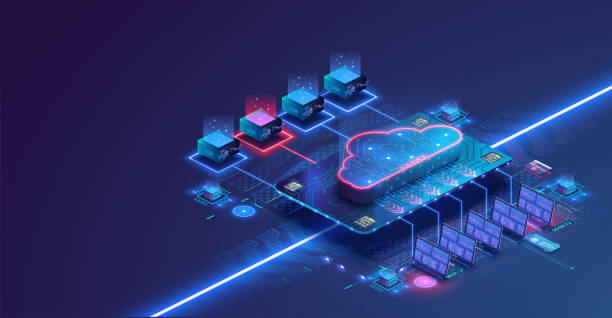Table of Contents
In an era driven by digital transformation, Google Cloud stands tall as a pivotal force, revolutionizing enterprises with its innovative solutions and robust infrastructure that fuels unprecedented growth and efficiency.
Enhanced Scalability
Google Cloud provides businesses with scalability and flexibility, enabling them to adapt to changing demands without the need for on-premise infrastructure. Its auto-scaling features adjust resources based on usage, ensuring businesses pay only for the capacity they need. Google Cloud&8217;s global network of data centers ensures low-latency access and supports sustainable practices, reducing carbon footprint. By integrating Google Cloud into operations, organizations can harness a scalable, stable, and sustainable infrastructure.
Advanced Data Analytics
Google Cloud&8217;s data analytics services, including BigQuery and Cloud Dataflow, enable enterprises to process and analyze large datasets quickly and accurately. BigQuery allows for immediate SQL queries on massive datasets, transforming businesses from reactive to proactive strategies. Cloud Dataflow offers real-time stream processing, crucial for industries like financial services and retail. These tools enable businesses to predict trends, understand customer behavior, and optimize operations with unparalleled accuracy, giving them a competitive edge.
Robust Security
In an age where data breaches and cyber threats are prevalent, robust security is non-negotiable. Google Cloud’s security framework is designed to protect against the most sophisticated cyber threats while maintaining compliance with global standards. This comprehensive security approach ensures that enterprises can operate with confidence, knowing their data and systems are safeguarded.
Google Cloud employs a multi-layered security model that encompasses physical security, network security, identity management, and threat detection. Data is encrypted at rest and in transit, ensuring that even if data is intercepted, it remains unreadable. Google Cloud’s infrastructure is also designed to fulfill stringent compliance requirements, such as GDPR, HIPAA, and SOC 2, making it suitable for industries with rigorous regulatory standards.
Identity and Access Management (IAM) is another crucial component of Google Cloud’s security apparatus. IAM enables organizations to grant the right individuals the appropriate level of access, ensuring that sensitive information is only accessible to authorized personnel. Coupled with advanced monitoring and logging capabilities, businesses can maintain a comprehensive overview of their security posture.
Furthermore, Google Cloud’s Security Command Center provides a unified view of security across the entire infrastructure, facilitating proactive risk management. This tool integrates with Google’s powerful threat intelligence resources to identify vulnerabilities and potential threats before they can be exploited. By adopting Google Cloud’s security solutions, enterprises enhance their resilience against cyber threats, ensuring the integrity and confidentiality of their critical data.
Efficient Collaboration Tools
Effective collaboration is the cornerstone of modern business operations, and Google Cloud offers a suite of tools designed to foster seamless communication and productivity. Solutions like Google Workspace integrate with Google Cloud’s infrastructure, combining professional email, cloud storage, and real-time collaboration tools into a cohesive environment.
Google Workspace includes well-known applications such as Gmail, Google Drive, Google Docs, Sheets, and Slides, which are optimized for collaborative use. These tools enable teams to work together in real-time from anywhere in the world, breaking down geographical barriers and facilitating remote work. For example, multiple employees can simultaneously edit a document in Google Docs, view changes in real-time, and converse through integrated chat features, streamlining the development of projects and reducing the time spent on email communications.
Additionally, Google Meet provides a robust video conferencing solution that integrates seamlessly with Google Workspace, allowing for virtual meetings and webinars that can accommodate large numbers of participants. The integration with Google Calendar ensures that scheduling these meetings is straightforward and efficient, further enhancing productivity.
Google Cloud&8217;s collaboration tools also support mobile access, ensuring that employees can remain productive even while on the go. The security measures embedded within Google Workspace protect collaborative projects from unauthorized access, maintaining the confidentiality and integrity of corporate information.
By leveraging Google Cloud’s collaboration tools, enterprises can create a more connected and agile workforce, enhancing productivity and fostering a culture of innovation. These tools empower employees to work together more effectively, irrespective of their physical location, thereby driving business success in a globally interconnected marketplace.
Cost-Effectiveness and Innovation
One of the most compelling advantages of Google Cloud is its cost-effectiveness, which is achieved through a combination of efficient resource management and innovative pricing models. Google Cloud operates on a pay-as-you-go basis, allowing businesses to scale their costs directly with their usage, eliminating the need for substantial upfront investments in hardware and infrastructure.
The platform’s billing system provides detailed insights into resource usage and cost, enabling enterprises to monitor and control their expenditures efficiently. Businesses can set budget alerts to avoid unexpected expenses and leverage Google’s sustained use discounts and committed use contracts to further optimize costs. This financial flexibility is particularly advantageous for startups and small businesses that need to manage their cash flow meticulously.
Innovation is at the heart of Google Cloud’s offerings, with continuous updates and new services that keep enterprises at the cutting edge of technology. For instance, Google Cloud’s integration with artificial intelligence and machine learning capabilities unlocks new opportunities for businesses to automate processes, enhance customer experiences, and generate deeper insights from their data. Enterprises can experiment with these advanced technologies without significant investments, fostering a culture of innovation.
Google Cloud’s marketplace also provides access to a wide array of third-party applications that can be seamlessly integrated into existing workflows, offering businesses the tools they need to innovate continuously. Whether it’s developing new products, optimizing supply chains, or enhancing customer relationships, Google Cloud’s ecosystem supports a wide range of business needs.
By harnessing the cost-effectiveness and innovative potential of Google Cloud, enterprises can allocate more resources towards strategic initiatives, drive continuous improvement, and maintain a competitive edge in the ever-evolving digital landscape.

